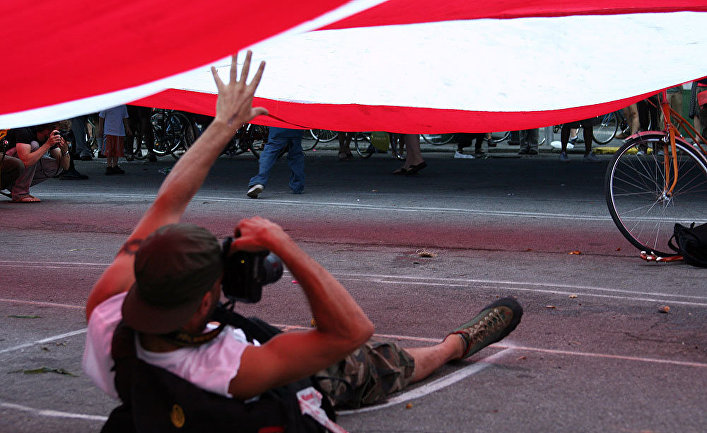American media and international organizations of journalists expressed their objections to the recently published new guidelines in a US military war manual. Two months ago, the Pentagon released the “Law of War manual”, which enables commanders to treat journalists as “unprivileged belligerents.” Journalists request US Department of Defense to change the part that may endanger the safety of reporters and harm the freedom of the press.
In the middle of June this year, the US Department of Defense released the 2015 edition of the Law of War Manual. The length of this guide is more than 1000 pages, providing legal guidance for American commanders and other military personnel. According to Pentagon, it is the first book of combat instructions that covers rules of war for all branches of the US military.
Some media advocates, including The New York Times and media watchdog organizations have expressed their concern on the provisions affecting journalists. The manual states that in general, journalists are civilians. However, journalists may be members of the armed forces, persons authorized to accompany the armed forces, or unprivileged belligerents — a category assigned to guerrillas or members of Al-Qaeda. The manual claims, “Reporting on military operations can be very similar to collecting intelligence or even spying.” It instructs journalists to “avoid being mistaken for spies” by acting openly and “with the permission of relevant authorities.” In addition, “States may need to censor journalists’ work or take other security measures so that journalists do not reveal sensitive information to the enemy.”
The New York-based Committee to Protect Journalists said the Pentagon "has produced a self-serving document that is unfortunately helping to lower the bar" for press freedom. The New York Times called for the repeal of provisions affecting the media, warning they would make the work of journalists covering armed conflicts "more dangerous, cumbersome and subject to censorship." Reporters Without Borders sent a letter to Defense Secretary Ashton Carter urging a dialogue on the issue. In the letter, the group said reporters should be under the protection of the Geneva Convention Relative to the Protection of Civilian Persons in Time of War and other international laws. This principle is in the previous edition of “Law of War Manual”. But according to the new guide, journalists could lose "privileged" status in combat areas merely by "the relaying of information," which, according to the latest guidelines, "could constitute taking a direct part in hostilities." “Unprivileged belligerents” is a similar concept with the often used "illegal combatants". Neither of the two categories can enjoy the equal rights in military laws as legitimate combatants do. Chris Chambers, Professor of Journalism at Georgetown University, said during an interview that “because the Geneva Convention, other tenets of international law, and even United States law – federal courts have spoken on this – doesn’t have this thing on ‘unprivileged belligerents’.” Putting reporters into this category greatly increases the level of risk they face. It gives the US military a license to attack or even murder journalists that they don’t particularly like but aren’t on the other side.
The Pentagon has insisted it "supports and respects the vital work that journalists perform." In order to explain the intention and concern behind the terms, a senior Pentagon official cited the assassination of Afghan military commander Ahmad Shah Massoud as an example. Mr. Massoud was killed by Al-Qaeda during an interview in September 2001. The suicide attackers set off a bomb composed of explosives hidden in a camera. In an editorial published earlier this month, the New York Times said Ahmad Shah Massoud was murdered by terrorists, who were not, in fact, journalists. The Pentagon official used this example to argue that some reporting activities could be construed as taking part in hostilities is ludicrous.
In order to disclaim the responsibilities, it is written in the preface of the book that the instructions in the manual are not a substitute for the current law. Legal experts should consult the relevant law and policy in specific situations. And the content in the manual is not on behalf of the US government's overall position.






